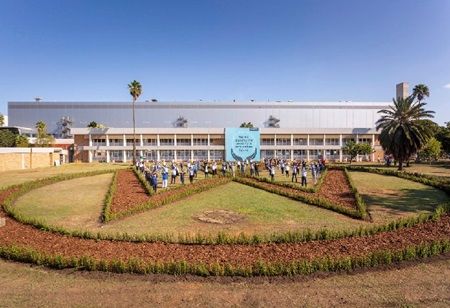The United Nations Office for Outer Space Affairs (UNOOSA) and the Government of Japan have announced a new phase of their collaboration under the Space Law for New Space Actors project. Launched in 2021, this initiative aims to provide ongoing capacity-building and legal advisory services tailored to the needs of countries in Asia and the Pacific, with a focus on the Philippines and Thailand.
Thanks to Japan's contribution, UNOOSA will now conduct technical advisory missions in these two countries, addressing their specific legal, administrative, and technical requirements. The primary objectives are to establish networks of focal points within the governments to organize international expertise, facilitate peer-to-peer networking opportunities, conduct face-to-face training, and jointly promote the project during implementation.
The Space Law for New Space Actors project uniquely provides UN Member States with customized support in drafting, revising, and implementing national space laws and policies in line with international space law. Its aim is to ensure the long-term sustainability and safe exploration of outer space. Additionally, the project seeks to raise awareness about the existing normative framework of space activities and promote compliance with the five international space law treaties developed and concluded by the UN Committee on the Peaceful Uses of Outer Space (COPUOS).
The Treaty on Principles Governing the Activities of States in the Exploration and Use of Outer Space, including the Moon and Other Celestial Bodies (Outer Space Treaty), forms the foundation of international space law. Since the adoption of the Outer Space Treaty, UN Member States have agreed upon a growing list of treaties, principles, guidelines, and resolutions that collectively define the normative framework for responsible activities in outer space. This framework has been crucial in creating a safe and sustainable space environment, fostering over half a century of exponential growth in space activities and the global space economy.
UNOOSA Director Aarti Holla-Maini highlighted the significance of the initiative, stating: "Over 80 Member States now operate national space programs. As more and more countries explore the possibilities of space activities, our office needs to provide support to improve compliance with the existing regulatory framework for space activities. The global governance of space has been negotiated by COPUOS over the last 65 years, and now we need to focus on implementation. Our partnership with the Government of Japan is invaluable in meeting this demand, especially given the increasing number of space activities in the Asia-Pacific region".
The Permanent Representative of Japan to the United Nations in Vienna, Kaifu Atsushi, expressed his enthusiasm for the cooperation, saying: "It is a great pleasure to cooperate with UNOOSA on this important project since 2021. We are also honored to support countries in the Asia-Pacific region in developing national space laws and policies and raising awareness of the existing normative framework. Through this cooperation, we look forward to contributing to the further strengthening of the rule of law in outer space".
This new phase of cooperation between UNOOSA and Japan will enhance the legal framework for space activities in the Philippines and Thailand. It will also significantly contribute to the global governance of outer space. Promoting a robust regulatory framework for responsible space activities is crucial for the sustainable use of outer space and the protection of the global space environment.
By fostering stronger national space laws and policies, this collaboration aims to support the continued growth and sustainability of space activities in the Asia-Pacific region and beyond, ensuring that outer space remains a realm of peaceful exploration and development for all nations.

